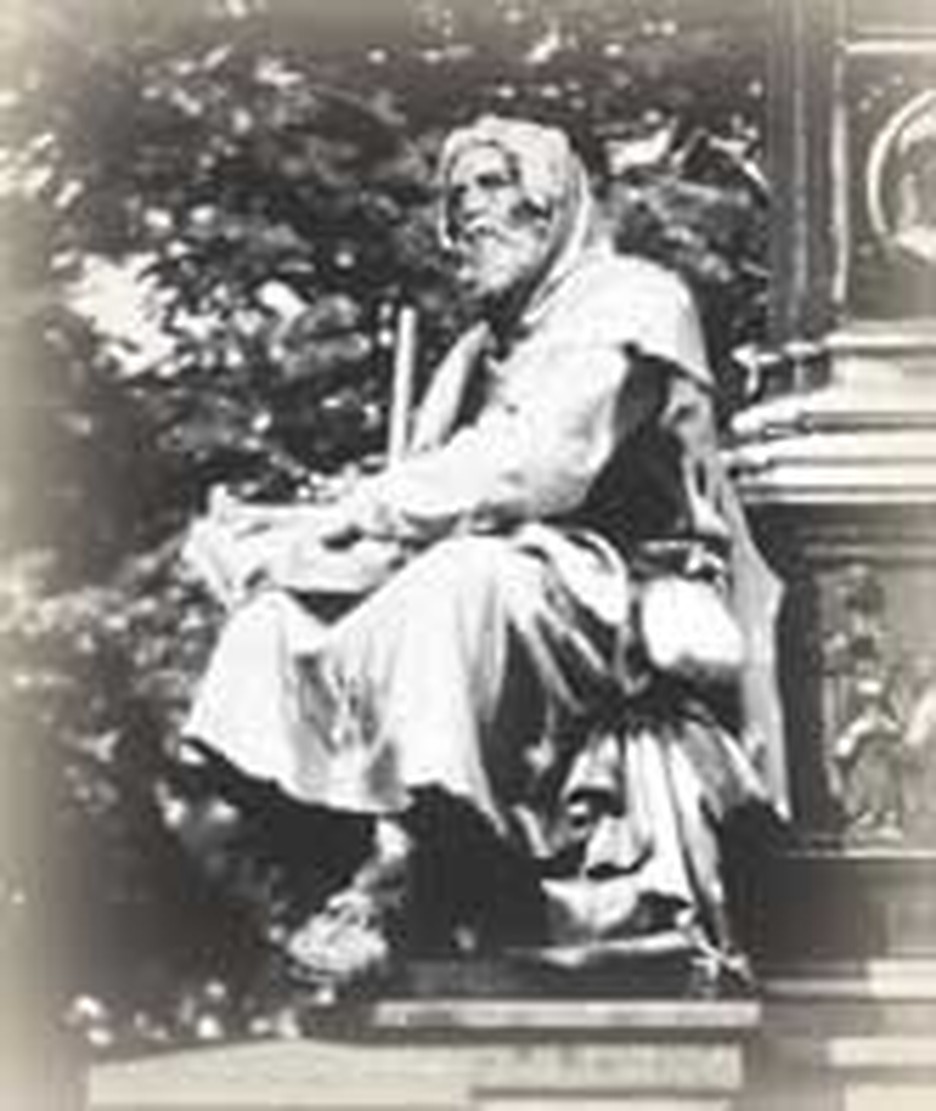
The Christian gospel from the time of Jesus was meant for the whole world. But as the Gospel spread there was the need to present it in the many different languages of the people. In the third century Armenia became the first officially Christian nation. Mesrop, Bishop of Armenia (390-439), created an Armenian alphabet so the Bible could be translated into the language of his people. An Armenian slave woman brought the gospel message to Georgia in Russia, which soon also had the Bible in its own language.
As Christianity spread to the borders of the Roman empire, translations were made into the languages of the barbarian tribes. Often the translator would first have to develop an alphabet for people who did not have a written language, much as translators do today among remote tribes. Throughout history Christianity has repeatedly encouraged the development of literacy among people who previously had no written language.
The earliest items written in any Germanic language are the fragments we have of the Bible translated by Ulfilas in the fourth century. Ulfilas' grandparents had been Christians in Cappadocia (in modern Turkey) when the Germanic Goths raided the region and carried them off as captives. Many of those captured by the Goths were Christians, and it was through their witness that Christianity first spread among the Germanic tribes. Ulfilas (whose name means "little wolf") received a good education in Constantinople, where he possibly was a hostage. Since he spoke Greek and Latin as well as Gothic, he became an able missionary to the barbarian tribes. Ulfilas organized the Gothic church and was its spiritual head for forty years. At this time the Goths had no written language, so Ulfilas devised an alphabet so he could begin to translate the Bible for them.
Missionary Monks Cyril & Methodius
Perhaps the most famous alphabet developed by Christian missionaries was
the Cyrillic alphabet, developed by two brothers who were missionaries
to the Slavic people in the ninth century. Cyril and Methodius were born
in Thessalonica. The brothers became monks and were sent by the Emperor
in Constantinople to Moravia. The liturgy of the church in the east was
Greek. But Cyril believed that all people should learn to praise God in
their own language - that was the only way they could understand and practice
Christianity properly. The Slavs did not have an alphabet, so Cyril invented
an alphabet especially for them. He mostly used Greek letters, but he
also used some Armenian and Hebrew letters, as well as some letters he
made up for particular Slavic sounds. The Cyrillic alphabet is still used
in Russia, Bulgaria, Serbia, and among other Slavic peoples. When Cyril
died in 869, Methodius continued as a missionary in Moravia. He translated
the entire Bible into the Slavic language before his death in 885. Cyril
and Methodius continue to be highly revered among the Slavic peoples today,
not only for bringing Christianity to the people, but for creating the
literary language of the Slavs.
In western Europe, during the Middle Ages, Latin was the official language of the church, and the Bible was most often found in Jerome's Latin Vulgate. Sometimes translations into the common language of the people were written between the lines of Latin Bibles. These were usually to help the missionaries and priests explain the Scriptures to the people in their language. Even the educated, however, rarely saw an entire Bible. Bibles were very rare, large, expensive, and usually in 2-3 volumes. Sometimes the wealthy would have translations of the Psalms or the Gospels. During the crusades the books of Kings, with its history of warfare and fighting, became popular, and crusaders sometimes had personal copies of these sections of the Old Testament.
Bible Stories in Many Forms
In the medieval church the Scriptures were shared in many imaginative
ways for much of the population could not read and books were not readily
available. The Bible was interpreted through mystery plays performed at
festivals or the carvings and stained glass windows of cathedrals or in
church music and great art.
Waldo and Wycliffe Begin Reforms
A group of Christians in twelfth century France founded by Peter Waldo
and called the Waldensians were among the first to demand Bible study
by the common people. Their ideas spread into Flanders and Germany, and
at least portions of the Scriptures were again translated into the language
of the people. Under the guidance of Oxford scholar John Wycliffe, an
English translation of the Bible was made in the fourteenth century. Wycliffe
believed the Word of God should be open to all people. The church authorities
were afraid the Bible in the hands of the uneducated would only produce
heretical departures from official church doctrine. Having translations
of the Scripture was often banned by the church, and many were punished
for having a Bible in their own language. These were dark days! As the
Hebrew prophet said, there had come a "famine for hearing the words
of the Lord" (Amos 8:11).
Chapter and Verse |


